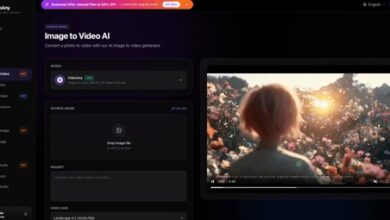From Clicks to Customers: How Digital Marketing Agencies Turn Online Engagement into Sales

In today’s competitive online world, generating clicks is easy but turning them into paying customers takes strategy, insight and experience. That’s where a digital marketing agency makes the difference. Beyond running ads or scheduling social media posts, agencies combine creativity, analytics and cutting-edge technology to help businesses attract, nurture and convert the right audiences.
For many UK businesses digital marketing has become essential for growth. Yet, understanding how likes, clicks and impressions actually translate into revenue remains one of the biggest challenges. The key lies in connecting every marketing action to a clear commercial goal, using data, content and automation to move customers seamlessly from curiosity to commitment.
Turning Attention into Action
Successful marketing campaigns start with understanding people. Engagement isn’t about vanity metrics; it’s about intent. When someone clicks an advert, opens an email or interacts with a post, they’re signalling interest. The next step is guiding that interest towards a meaningful action.
A skilled digital marketing agency uses a mix of audience research, behavioural data and creative storytelling to make that journey feel effortless. For instance, an agency might identify that a company’s website receives high traffic but few conversions. By analysing visitor behaviour they can redesign calls-to-action, simplify navigation, or create persuasive landing pages that increase sign-ups or purchases.
Paid advertising also benefits from expert management. Agencies constantly test ad copy, target groups and keywords to ensure every pound spent on Google Ads or paid social drives measurable returns. With real-time reporting dashboards, clients can see exactly which campaigns are performing and how much revenue they’re generating, giving transparency and control that’s hard to replicate in-house.
This approach doesn’t just boost numbers; it enhances customer experience. When marketing messages are tailored, relevant and timely, audiences feel understood. That’s what encourages them to buy, recommend and return.
Building a Conversion Engine
Once engagement begins, the goal is to turn interest into loyal customers. Successful agencies build entire conversion ecosystems that work together across multiple channels.
Email marketing remains one of the most effective tools for nurturing prospects. Rather than sending generic updates, agencies segment audiences based on behaviour and preferences, delivering personalised content that feels helpful rather than intrusive. A customer who viewed a product but didn’t purchase might receive a follow-up with a testimonial, special offer or reminder.
Search engine optimisation (SEO) plays a major role too. Appearing on the first page of Google builds trust and attracts organic traffic, which typically converts better than paid clicks. Agencies combine on-page optimisation, link-building and content strategy to help clients rank for the terms their customers actually use.
Social media, meanwhile, provides a space to build relationships. Whether it’s Instagram reels, LinkedIn thought leadership or Facebook ads, agencies ensure brands show up consistently with strong visuals and a clear voice. They track performance closely to refine future campaigns.
Integration is crucial. Each channel should feed the next: ads drive traffic to optimised landing pages, which capture leads through valuable content, which are then nurtured via email or remarketing until conversion. This full-funnel approach turns digital marketing from an expense into a growth engine.
Measuring Success and Scaling for Growth
What sets a professional agency apart is its focus on measurable outcomes. While creativity and intuition play their part, data is at the heart of modern marketing. Agencies use sophisticated analytics tools to track every step of the customer journey revealing which channels deliver the best ROI.
For example, if the data shows that customers who discover a business through organic search have a higher lifetime value than those acquired via paid ads, the agency can reallocate budget accordingly. This continuous optimisation ensures marketing spend is always working harder.
Performance data also fuels strategic decisions. Business owners can make informed choices about product lines, pricing or customer experience based on what the numbers reveal. As agencies gather and analyse ever more customer data to optimise conversions, it’s essential to stay mindful of the evolving privacy landscape. Data ownership and permissions are becoming central to marketing integrity
Growth isn’t only about numbers. The best agencies focus on brand strength and customer loyalty, helping businesses stand out in crowded markets. They create content that builds trust, from compelling blogs and videos to case studies and customer stories. Over time, this positions a brand as an authority leading to organic referrals and long-term profitability.
Before investing heavily in new marketing initiatives, it’s important for retailers and service providers to ensure their business fundamentals are sound. Routine financial health checks and efficient internal systems help protect profit margins and ensure marketing gains translate into sustainable growth.
Ultimately, working with a digital marketing agency is about building a strategy that connects engagement to sales, and sales to long-term business success. With the right expertise, UK businesses can compete confidently on national and international stages, using digital channels to reach more customers and deliver better results than ever before.
Digital marketing has evolved from simple online promotion to a sophisticated blend of data, psychology and technology. Partnering with professionals brings access to advanced tools, specialist insight and proven strategies that can transform performance across every channel.



